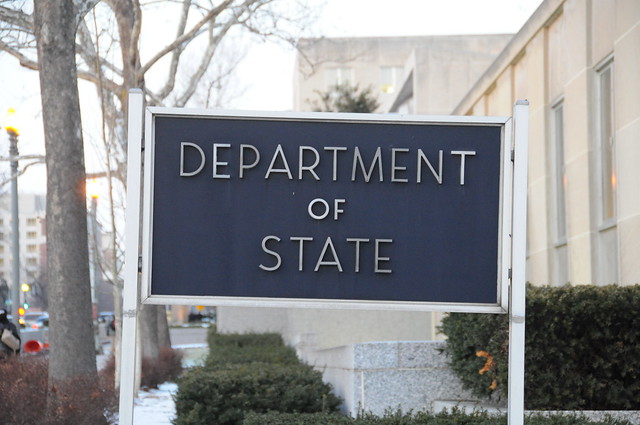The State Department’s Confusion over Confucius Institutes
Helle Dale /
On May 17, Robin J. Lerner, deputy assistant secretary for private sector exchange at the State Department, made a valiant attempt to correct the troubling disparity in the public diplomacy competition between the Chinese and American governments, a competition in which the Chinese are clearly pulling ahead.
The issue in question was the Chinese government-sponsored Confucius Institutes hosted by American universities. China has 70 such institution in the United States, more than any other country in the world. The U.S., meanwhile, has all of five America Centers in China.
Lerner signed a visa policy directive and sent it to U.S. universities that sponsor Confucius Institutes. The document stated that any faculty member who, through a college’s J-1 exchange program, teaches students of elementary or secondary school age, is violating visa rules. It also stated that the educator must return to China by June 30 to reapply for an appropriate program. If enacted, at least 51 Chinese teachers would have been forced to leave the U.S.
The directive also demanded that the institutes were required to obtain U.S. accreditation of “academic viability.” It was the first time that such a requirement had been made since the first Confucius Institute opened its doors at the University of Maryland in 2004, part of an aggressive new Chinese public diplomacy approach.
Certifying that the Confucius Institutes are actual educational enterprises is an appropriate requirement. They are also Chinese propaganda tools, and critics have accused them of undermining academic freedom with government-produced curriculum, being spy hubs capable of acquiring sensitive information, and attempting to control campus activities and discussions.
Not surprisingly, the Chinese government went ballistic. The issue was covered extensively on the Chinese evening news and in print, unlike here in the U.S., where it barely made a media blip. According to China Daily USA, on May 20, the head of Confucius Institute headquarters in China wrote to her U.S. university partners that she hoped that the project would not be affected or halted by the directive. Lerner met with Chinese officials for a “candid” talk, and within 24 hours of this consultation, a revised policy directive was sent out on May 25.
As a result, no Chinese teacher will be forced to leave the country, and no accreditation is required for the institutes. China Daily USA even gloated that the State Department allowed Chinese officials a sneak peek of the revised document before it came out.
This seems to have quelled the tensions; the Beijing headquarters of the Confucius Institutes declared the issue “resolved” and “needing no more criticism,” a very Chinese way of declaring victory. From the American side, State Department spokesman Victoria Nuland docilely commented that the U.S. welcomes cultural exchange and that the dispute was only over the status of certain visas.
It is a shame that this unusual display of State Department backbone in dealing with China was so short-lived. It might have created the reciprocity and symmetry that U.S. public diplomacy needs to have a chance against China’s ideological advances on U.S. university campuses. However, it was very clumsily handled, and the result was an American loss of face.
Image used under Creative Commons from tomarthur.

